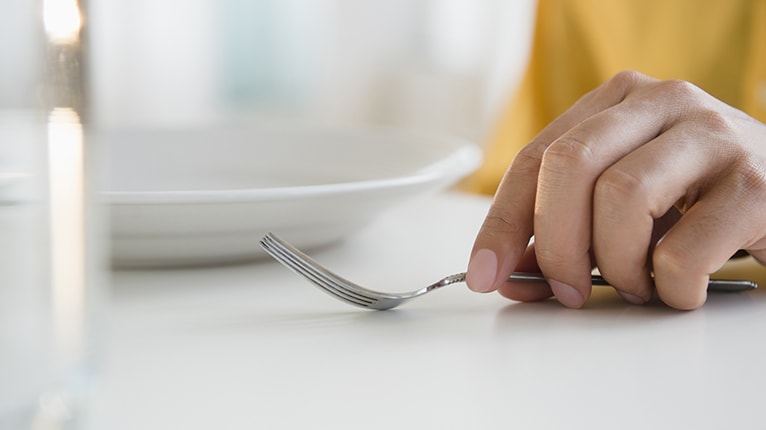Managing nutritional concerns: Mouth sores/dry mouth
Managing nutritional concerns: Mouth sores/dry mouth

Cancer treatment affects the cells in the body that replicate the fastest and are the most sensitive. These cells are located throughout the lining of the gastrointestinal (GI) tract, which consists of the mouth, throat, esophagus, stomach, intestines, and rectum. As a result, cancer patients often experience symptoms in these areas, including mouth sores and dry mouth.
Mouth sores (mucositis, stomatitis) may occur in spite of the best oral hygiene. Proper oral hygiene may not necessarily prevent mucositis but can decrease severity and duration.1
Oral Care Tips For People Experiencing Mouth Sores/Dry Mouth2,3:
- See your dentist if possible before you start treatment
- Check your mouth daily for any sores, white patches, or bleeding. Make sure to look at your teeth, gums, and mucous membranes. Call your physician about any increase in sores or pain, white patches, or if you are having difficulty eating, drinking, swallowing, or talking
- Use a soft bristle toothbrush (running under hot water can make bristles even softer) to gently brush your teeth and tongue, twice a day. Air-dry your tooth brush before putting it away to discourage growth of bacteria
- Gently floss your teeth daily if your platelet count is in a safe range (and if advised by your MD)
- Rinse your mouth four times a day using a bland rinse of water, baking soda, and/or salt water after meals. Room temperature or cold water is usually best. (Baking soda reduces acidity of saliva, thins mucous, and discourages growth of yeast.) DO NOT SWALLOW
- Avoid mouth products containing alcohol as they will dry out and irritate your mouth
- Protect your lips using a water-based moisturizer
- Avoid alcohol and tobacco, which will irritate and dry out your mouth
Nutrition Tips:
- Stay hydrated and drink plenty of fluids. Sip on fluids throughout the day
- Avoid foods that are salty, spicy, acidic, and rough or coarse in texture. Consume foods at room temperature
- Use sauces, liquid, broth, or gravy to moisten food
- Consume soft foods such as soups, smoothies, yogurt, hot cereals, casseroles, eggs, tender meats, and well-cooked and mashed fruits and vegetables
- Use ice chips, sugarless gums, and sucking candies to moisten mouth
- For dry mouth, without mouth sores, try a tart liquid or food (lemon, lime, and/or pickles)
- Drink fluids through a straw to divert away from painful areas
- Discuss with your physician if you feel that you need medication to help alleviate the pain
Always communicate with your doctor and nurse about what you are experiencing. Contact your MD if you have mouth sores, ulcerations, bleeding, white patches, pain, or difficulty swallowing, eating, drinking, or talking.
References:
- Dental and Oral Health. http://www.cancer.net/navigating-cancer-care/side-effects/dental-and-oral-health. Accessed December 6, 2016.
- Elliot, L. Symptom Management of Cancer Therapies in Lesser M, Ledesma N, Bergerson S, Trujillo E, eds. Oncology Nutrition for Clinical Practice. Oncology Nutrition Dietetic Practice Group of the Academy of Nutrition and Dietetics. Academy of Nutrition Dietetics; 2013:119-120.
- American Institute for Cancer Research, Savor Health and LIVESTRONG. Heal Well: A Cancer Nutrition Guide. 2013. http://savor.static.assets.s3.amazonaws.com/pdfs/Heal_Well_Cancer Guide_2015-web.pdf. Accessed December 6, 2016.
The health information contained herein is provided for educational purposes only and is not intended to replace discussions with a health care provider. All decisions regarding patient care should be made with a health care provider.

















